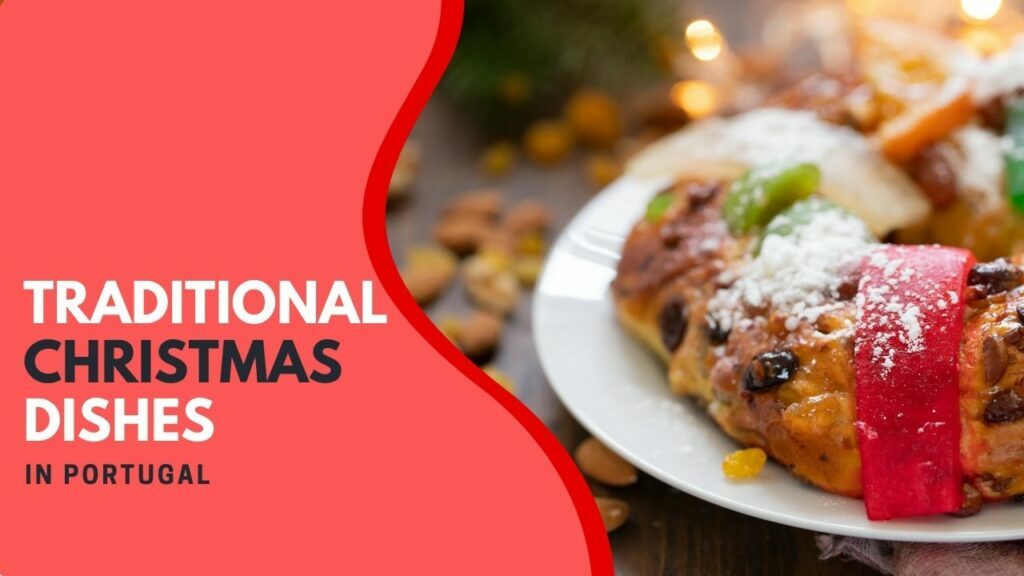My two favorite holidays are Halloween and Christmas. Sadly for me, these holidays are not celebrated at all like they are in the United States. I guess I have become accustomed to a very commercialised Christmas holiday. The lights, the shopping, and the food. If you visit Portugal during the holidays, don’t expect it to be like it is in the US. A less commercialized Christmas is not a bad thing, but I am used to get up super early in the morning, walk to see the tree at Rockefeller center before the crowds came in, and then spend a good amount of time checking out the windows at the stores (Bergdorf’s windows were always my favorites).
What Is Christmas Like In Portugal?
In Portugal, Christmas is quite low key and has a focus on family (I guess that’s how it should be). On Christmas Eve, families typically gather together for a big feast known as the Consoada, during which they enjoy a variety of traditional dishes such as bacalhau (cod fish) and peru recheado (stuffed turkey). After the meal, it is common for families to attend midnight mass or participate in other religious activities. On Christmas Day, families often exchange gifts and spend time together enjoying each other’s company. Additionally, it is common for people to attend special Christmas concerts or other cultural events. Overall, the Christmas season is a time for families to come together and celebrate the joy of the holiday season. Today, I’ll be talking about the traditional dishes served in Portugal at family tables throughout the country. I hope it makes you hungry.
Main Dishes Served For Christmas In Portugal
The main dishes that are typically served at a Portuguese Christmas table can vary depending on the region and the family’s traditions. However, Portugal is a seafood country so you will find plenty of water creatures on the Christmas table. Let’s take a look at traditional Portuguese Christmas dishes:
Bacalhau
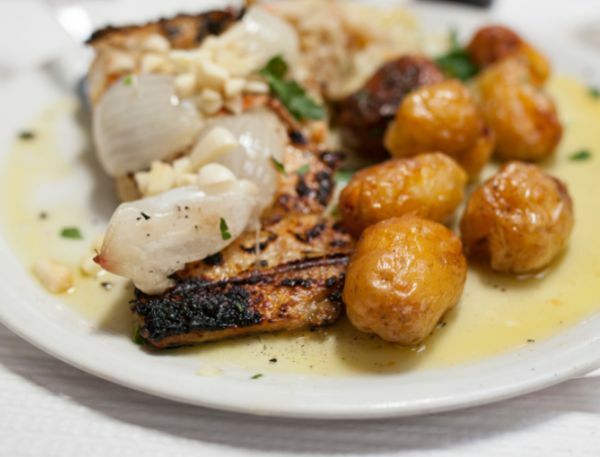
Bacalhau, salted codfish, is often prepared with potatoes and eggs or served with vegetables and greens. This is the most popular Christmas dish across the entire country.
Cabrito assado no forno
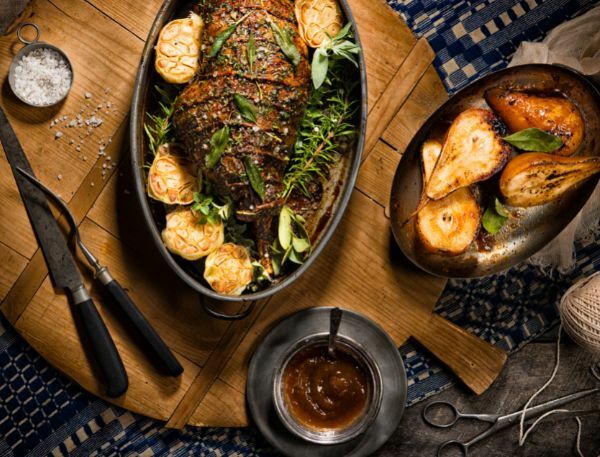
Oven roasted goat is probably the second most popular main at Portugal’s Christmas tables. It is usually served with roasted potatoes (one of my favorite things to eat in Portugal).
Peru Recheado
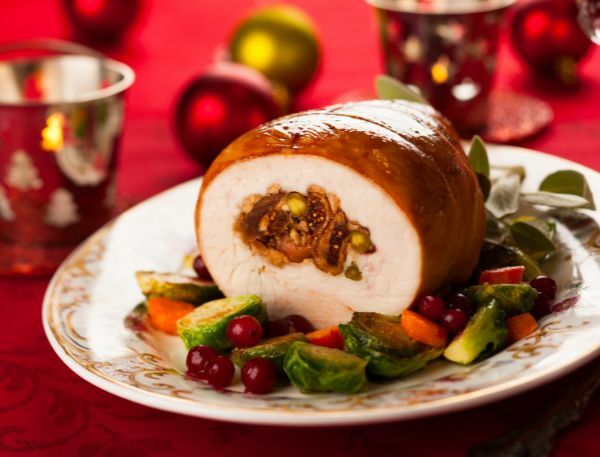
Move over Thanksgiving. Christmas is the holiday when Portuguese eat stuffed turkey served with chestnuts and rice. It can be a whole bird, or something as simple as a stuffed turkey breast.
Polvo Cozido
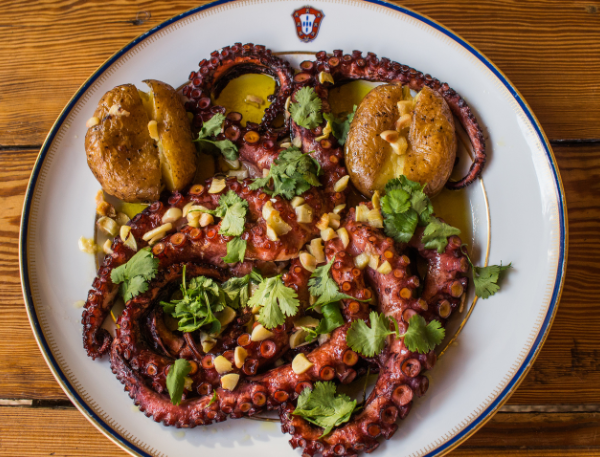
The tradition of eating octopus at Christmas was strong in Galicia and to no surprise it made it across the border to Northern Portugal where Spain and Portugal meet.
During Salazar’s dictatorship, the importation of octopus was prohibited in favor of cod. During that time, people smuggled it into Portugal.
To prepare the octopus for Christmas, Portuguese families would hang the octopus behind the door and wash it in a fountain two days before the holiday. It was then beaten against a stone at least 50 times until it became tender. It was cooked with potatoes and onions and eaten before Midnight Mass.
This is one of my favorite dishes to eat for Christmas in Portugal.
Christmas Desserts in Portugal
Rabanadas
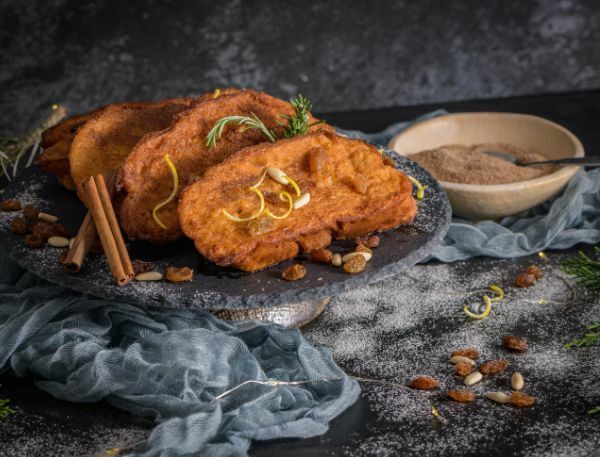
Portuguese French toasts are amazing. You can choose to soak them in milk, wine, or simple syrup before coating them in beaten eggs followed by a fry. Delish!
Filhós
These remind me of Christmas in Colombia. They are made of dough that is left to rise while you’re at church. When you get home from mass, they are fried, sprinkled with cinnamon sugar, and enjoyed by all.
Coscorões
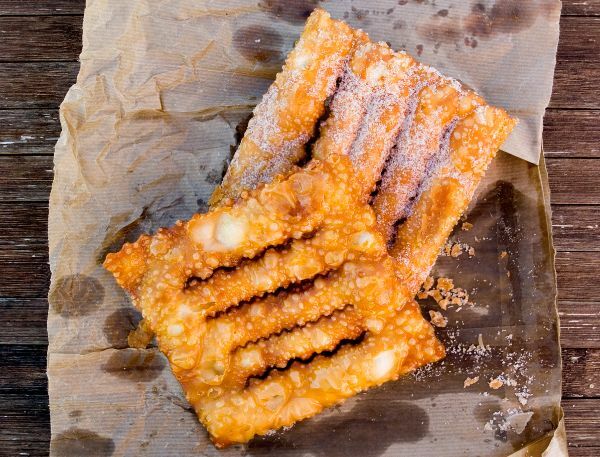
These really remind me of Colombian Hojaldras. It’s basically fried dough covered in sugar. They even have a touch of orange in common.
Bolo Rei
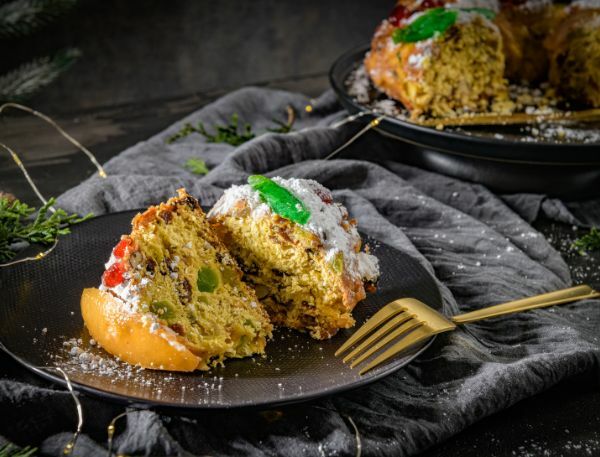
Bolo Rei, or “King Cake,” is a traditional Portuguese pastry that is often served around the holiday season. It is made with a sweet dough that is flavored with citrus zest and decorated with dried fruit and candied peel.
A small prize, such as a small plastic toy or a dried bean, is often hidden inside the cake, and whoever finds it in their slice is said to have good luck for the year. Bolo Rei is often served with a sweet wine or a cup of strong coffee. While Bolo Rei is served during Christmas, it is really meant to be served for the Feast of the Epiphany on January 6. The Feast of the Epiphany, also known as Dia de Reis in Portuguese, commemorates the visit of the three wise men to the baby Jesus.
This obviously does not cover all the dishes served at Christmas in Portugal. They vary by region and households. I’ll add more as time goes by, but for now, I hope these give you plenty of inspiration.

